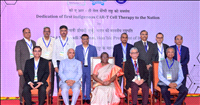Bayer develops raw materials for solar-powered refrigerators
26 Aug 2010
Palfridge Ltd, a leading manufacturer of refrigerating appliances in southern Africa, based in Swaziland, has developed an eco-friendly refrigeration equipment, very thick-walled insulation made of rigid polyurethane foam based on raw materials from Bayer MaterialScience.
In fact, the company manufactures appliances with using such insulation developed by Bayer MaterialScience, which is among the world's largest polymer companies, with 2009 revenues of Euro7.5 billion.
 |
| In Swaziland, temperatures are high and food goes off quickly because electricity is not widely available and, consequently, communal refrigerating appliances can only be used to a limited extent. |
Palfridge appliances have an insulating layer 10 centimeters thick, which keeps the contents cool for up to five days without electricity – even at external temperatures of over 40 degrees Celsius, ideal for markets such as Swaziland.
Swaziland in southern Africa is one of the world's poorest countries. Its inhabitants live widely dispersed in villages and have to grow their own food. Temperatures are high and food goes off quickly because electricity is not widely available and, consequently, communal refrigerating appliances can only be used to a limited extent.
Long-term refrigeration of both food and medicines is essential to many people's survival in Swaziland. More than 25 per cent of the population is HIV positive – one of the highest rates anywhere in the world – and therefore dependent on drugs that need to be stored in a cool place, as do drugs to treat malaria.
Thanks to its outstanding insulating properties, rigid polyurethane foam is used in most refrigerating appliances worldwide. ''Polyurethane insulation has therefore contributed significantly to reducing the energy consumption of refrigerators from 1950 to 2005 by 65 per cent'', says Robbie Buchanan, an expert for polyurethane insulation at Bayer MaterialScience in South Africa.
Some of the company's product lines are also equipped with two 90 watt solar modules, which are a great help in powering refrigeration appliances in hot countries. ''Thanks to these and other measures to boost efficiency, our appliances consume substantially less energy than conventional refrigerators,'' reveals Roy Singh, technical director at Palfridge.
Only recently, Palfridge was the first company in Africa to switch its entire production to natural refrigerants in the form of hydrocarbons. ''This enabled emissions of gases containing fluorine to be reduced by a total of 29,000 metric tons of carbon dioxide equivalents per year.
In addition to improving conditions for the people, these measures also make a small contribution to climate protection,'' continues Roy Singh. The project was financed under the Proklima program of the Deutsche Gesellschaft für Technische Zusammenarbeit (GTZ) GmbH.













.jpg)






.jpg)









